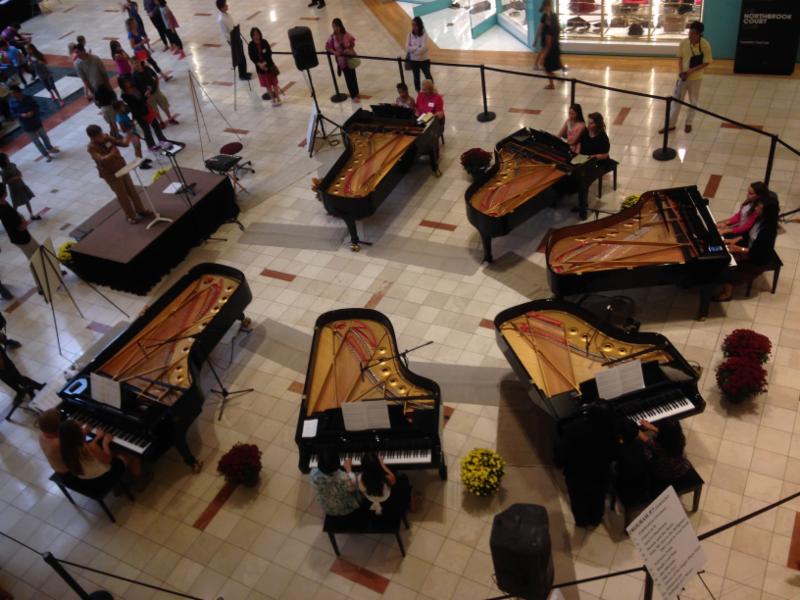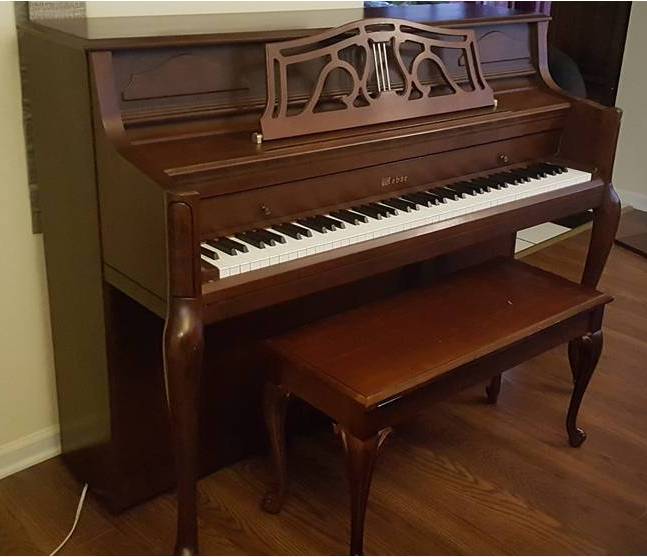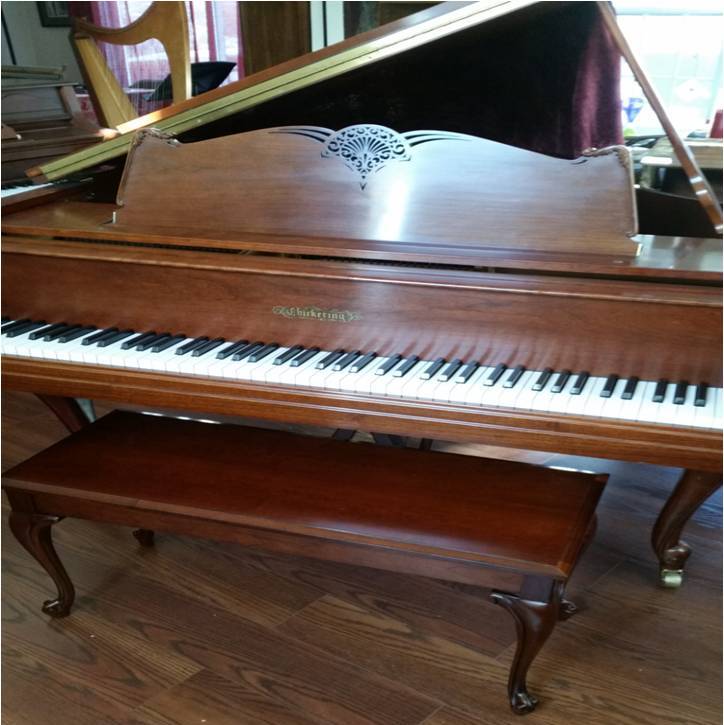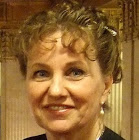|
Upcoming Events
APRIL
PROGRAM:
Mary Hough and Karen Mazza
"How We Du-et!"
Monday, April 16, 2018
Rolling Meadows Library
9:15 A.M. IMT (Independent Music Teachers) Chat
9:45 A.M. Meeting
AIM: PERFORMANCE EXAMS LEVEL 10-12
Sunday, April 22, 2018
Monday, April 30, 2018 Deadline: Luncheon
Mail reservation and checks to Justyna Krafft-Weirich
MAY
Monday, May 14, 2018 Chicago Prime Italian
1370 Bank Drive, Schaumburg, IL
10:45 A.M. General Meeting followed by lunch
Mail reservation and checks to Justyna Krafft-Weirich
|
|
|
|
|
|
|
A NOTE FROM OUR PRESIDENT
Spring greetings! I hope that you had a very happy Easter or Passover season with your families, and that the school spring break gave you a chance to take a brief respite from your regular teaching schedules.
I am happy to report that, as I anticipated, attending the MTNA conference in Orlando was a great experience. I was delighted that MTNA chose a warm weather location for the conference. It was such a pleasure to walk outside between my room and the conference center and admire all the lush greenery and flowers. Of course for most of each day I was too busy running from one session to the next to enjoy the weather!
On the first day I attended the Plenary Session entitled "Preventing Overuse and Injuries: A Neurological - Psychological Perspective from a Physician - Flutist" presented by Dr. Eckart Altenmueller from Hanover, Germany. Dr. Altenmueller was an engaging speaker who highlighted the latest research on the effects of music study on the brain. He had slides of MRI's showing how different parts of the brain are engaged in music making. His research indicates that children who start learning an instrument by age 6 ½ develop more efficient neural networks which facilitate learning and help prevent injuries. He emphasized how important the first lessons and teacher are in establishing good technique. He also gave us the encouraging news that musicians have more active brain neurons as they age, more blood flow to their brains, and thus less risk of dementia.
Later that day I attended a presentation by Dr. William Westney. He based his session on insights gleaned from the character Mr. Miyagi in the Karate Kid movie. He showed clips from the film and discussed how we as piano teachers can use his kind, respectful, generous approach with our students. We learned how technique evolves from big natural gestures, like the motions Mr. Miyagi had his karate student practice in waxing his car and painting his house. He reminded us how important it is not to rush musical development and to remember that progress often happens below the surface with small breakthroughs followed later by major leaps.
In the afternoon I attended a lecture by Dr. Catherine Kautsky titled "1918: War, Peace, and the Piano." In this centenary year of the end of the First World War, she examined the psychological effects of the war on artists, writers, and musicians in Europe. She played musical examples and related them to the art of the period. One of her most interesting observations was that music was actually more experimental before the war. Both during and after the war music tended to be nationalistic and conservative. Composers wrote music as a source of consolation and relief after suffering so much loss and trauma. She also felt that, at least in that era, music served to divide nations and people rather than to unite them.
On the second day of the conference the morning sessions were devoted to accelerated learning and were only twenty minutes long. I attended three great sessions on practicing, which included video clips of artist pianists in practice rooms, tools for teaching transfer students productive practice habits, and ideas for practicing for better left hand independence and security. In the afternoon I enjoyed a change of pace in a session titled "Mind - Body - Music: From Proper Alignment to Artistic Performance" by Dr. Elaine Burns. She had us try some simple breathing techniques, meditation, and movements which can be used in practicing, teaching, and preparing for performances.
On Tuesday morning I attended a presentation titled "Olympics of the Small Muscles: Knocking Your Performance Out of the Park" by Dr. Alan Huckleberry from the University of Iowa and Lia Jensen-Abbott from Albion College. They analyzed the practice habits of athletes and suggested ways to transfer them to the piano. They also listed the approaches of master coaches that we can adopt as teachers. They gave examples of sports analogies which can be helpful in communicating with students and parents who often hear similar language from coaches.
On Tuesday afternoon our very own NWSMTA members Jennifer Cohen, Helen Grosshans, Vonnie Mrozinski and Beverly Taylor presented "Do the Studio Crawl." I would like to congratulate them on their successful session, which was well attended and very well received. They even gave out goody bags! There were several piano bloggers in attendance, so we can expect their fame to spread far and wide. Thank you for being such outstanding representatives of our association!
I hope that these brief highlights from the MTNA conference will inspire you to make plans to attend in the future, especially when the conference is held in Chicago again. Suzanne Murray
Suzanne Murray
|
|
MARY HOUGH and KAREN MAZZA
"How We Do-et!"
Our very own members, Mary Hough and Karen Mazza will present some of their favorite repertoire in the program entitled, "How We Do-et!" This delightful music will be heard immediately after our April business meeting on the 16th at Rolling Meadows Public Library.
|
|
25TH NWSMTA FESTIVAL OF PIANOS

The 25th consecutive Festival of Pianos is to be held at Northbrook Court on
Sat. Sept 29th- rehearsal and
Sunday, Sept 30th, 2018- performance. The deadline for registration is
June 30th and is to be sent to Diane Adamek.
The guidelines, repertoire and registration form are found on our website.
Please consider enrolling your students. We hope to make this 25th year the biggest and the best ever!
Any questions are always welcomed. Please contact Marcia Mally or Sandy Leibowitz.
BENEFITS OF PLAYING IN THE 25TH NWSMTA FESTIVAL OF PIANOS
1. It is a rare ensemble experience for piano students, teachers and parents and teaches them to follow a conductor.
2.
Students have the opportunity to play duets with not only a partner but with ten others playing the same duet on six Steinway grand pianos, two 9' and four 7'.
3.
Parents and Students play together and feel proud of their
accomplishment playing in the Festival at Northbrook Court.
4.
Students learn to truly listen and observe playing the duet
at the tempo set by the conductor.
5. Pride and joy is experienced by the parents, grandparents
and friends in the audience. Plus, shoppers stop to listen.
6.
Students realize how many other people are taking piano
lessons and and encourages them to want to continue.
7.
If you've never done this before, it enhances your teaching and introduces you to different duet music and you grow as a musician.
8.
Students realize they are part of something big like a piano
tournament.
9. Students who participated in the Festival tend to stick with
Piano Lessons longer as they look forward to the Festival
each year.
10. Most of all, it's a fun and happy experience shared by all,
students, teachers, parents, family, friends and everyone.
|
|
ALL THAT JAZZ
Save the date! Start preparing your students now for our first "All that Jazz" Event. Students will have the opportunity to perform on stage, accompanied by professional back-up musicians.
This will take place at Durty Nellie's Pub, 180 N. Smith Street, Palatine, on June 3 from 12:00 - 4:00 p.m.
The fee for participating is $20.
Students may play jazz, blues, pop, rock & roll repertoire. Teachers must provide the sheet music for the musicians, with chords. All students must be able to keep a steady beat and teachers must work with students using practice tracks with keyboard rhythms, recordings, and rhythm apps. More information to follow!
|
|
TEACHERS' MUSICALE
Several of our teachers prepared and performed a very nice program at Steinway Gallery in Northbrook on April 9 at 10:00. The music was very inspiring - thank you all for sharing your wonderful gift of music with us! It lasted just over an hour, with 12 members attending.
April 9, 2018 -
Steinway Gallery of Northbrook -
PROGRAM
Suite de Danzas Criollas, Opus 15 by Alberto Ginastera
Kelly McCallum
Sonata in Eb Major, Hob. XVI:52, I Allegro by Haydn
Chyi-Ling Evans
Capriccio, Opus 76, No. 8 by Johannes Brahms
Elizabeth Lieberman
16 Waltzes, Opus 39 by Johannes Brahms
No. 1, 4, 8
Yoko Amano, Elizabeth Lieberman
Symphony No. 9, I "From the New World" by Anton Dvorak
Youjin Bang, Suyi Su
Oiseaux tristes by Maurice Ravel
Jardins sous la pluie (from Estampes) by Claude Debussy
Janice Razaq
Etude Opus 10 by Chopin
No. 1, No. 4
Chieko Garling
Pour Toi (Feelings) by Louis Gaste
Janna Gaingulin
Brenda Buchanan, 1st VP/Program Chair
|
|
PIANOS FOR SALE
Technician-prepared Quality Pianos for Sale
Solid name-brands like Yamaha, Kawai, Baldwin, Chickering
Many in like-new condition!
Selling for far below dealer prices
1 year warranty, free tuning in home
Piano teachers earn cash for referrals
$75 commission for consoles/uprights, and $125 for grands.
Over thirty years experience, including at Lyon-Healy and as a Baldwin factory rebuilder
A440 tunings by ear only $90
Contact Paul at Careys' Piano Service in Naperville paulcarey440@gmail.com or 708-955-0712
You may know me as an internationally-recognized choral composer, or as a vocal/choral accompanist. I also have over three decades of experience as a piano tuner/technician, having had full time experience with the old Lyon-Healy chain which dominated the Chicago musical retail scene for many decades and the Baldwin factory where I restrung fine Baldwin grand pianos.
I have begun purchasing very clean, high-quality pianos, fixing them up and reselling them for far less than a piano dealership. All these pianos include the matching original bench unless noted otherwise. In most cases these pianos can virtually pass for new when looking at the cabinet and the minimal wear and tear inside.
Here are the pianos currently in my shop in Naperville-the first three are ready for viewing right now, and the other four will be ready soon.

Weber Console Model WF-108, serial #T00022720 (new c. 1998)
Built by Young Chang (South Korea) Queen Anne style- dark cherry satin finish (no pressed wood or synthetic finish) Solid spruce soundboard in perfect condition, high quality hammers, full perimeter cast plate, etc. This piano is in virtually new condition. The cabinet is gorgeous. Hammers are in excellent condition. Wonderfully even tone and touch. A one-owner instrument. This would be a great piano for a beginner through early advanced. This piano probably listed for at least $6,000. My price: $2,400 cash plus delivery. Includes a free tuning in your house and one-year limited warranty.
 Chickering Baby Grand Model 410 (new 1999)
Built in 1999 by Baldwin/DongBei Piano Group, with Baldwin patented construction. Queen Anne stylecherry satin finish (no pressed wood or synthetic finish) Solid spruce soundboard in perfect condition, high quality hammers, etc. This piano is in virtually new condition. The cabinet is fantastic and the carved detailing in the music rack and the legs is delightful. This piano listed for c. $13,000 when new. My price: $7,000 cash plus delivery.
Yamaha Console Model M16, 42" tall (new 1988) Built by Yamaha in their South Haven, Michigan U.S.A. factory (where fine Everett pianos were made) Traditional with tapered round legs-light cherry satin finish
Yamaha Baby Grand Model G1, 5'3'' long (new 1975) Built by Yamaha in their main Japanese factory. This is a classic - Yamaha has sold gazillions of this model!
Baldwin Console Model 662, serial #1532898 (new 1997). NO ORIGINAL BENCH (but have a substitute) Built by Baldwin in U.S.A. Queen Anne style- medium cherry satin finish
Weber Studio built by Young Chang. High polish ebony finish. This is a workhorse studio piano
And by the way, I am taking on beginning through early advanced harp students, privately and in groups here in Naperville and Saturdays in Western Springs. I hope you will send anyone who wishes to try the harp to get ahold of me. I have small, inexpensive student harps for rental, made in the USA.
|
|
OAKTON SIX PIANO ENSEMBLE CONCERTS
The Oakton Six Piano Ensemble, under the direction of Conductor Glenna Sprague, will present concerts on Saturday, April 28 at 8:00 p.m. and Sunday, April 29 at 3:00 p.m. in the Footlik Theater at Oakton Community College, 1600 East Golf Road, Des Plaines.
The Six Piano Ensemble was formed by Glenna Sprague, Professor and Coordinator of Music at Oakton, where she also teaches piano. Performing at six pianos, the group performs not only traditional classical piano music; but also, symphonic literature as well as ragtime and popular music. The rich, layered sound of the Six Piano Ensemble compares to that of an orchestra, with each member playing a different part of a composition as the melody transfers from pianist to pianist. At this year's concerts, we are celebrating Leonard Bernstein's 100th anniversary by performing "Oh, Happy We" and "I Am Easily Assimilated" from Candide, as well as performing the "Hungarian Dance, No. 2 in D Minor" by Brahms; "Waltz" from the Masquerade Suite, by Khachaturian; Märsche No. 1 and No. 3, Op. 45 by Beethoven; Slavonic Dance in E Minor, Op. 72, No. 2 by Dvořák; "Original Rags" by Joplin and other selections.
Tickets are $17 for general admission, $14 for seniors and students, and $12 for group rate. For ticket information, call the Oakton Box Office at 847-635-1900 or order tickets online at
www.oakton.edu/tickets. Following each concert, there is a reception.
Widely acknowledged as one of the most unique musical groups in the world, the Oakton Six Piano Ensemble has performed in Europe and the United States, including the 32nd World Conference of the International Society for Music Education (ISME) at the Royale Conservatoire of Scotland in Glasgow; the College Music Society International Conference in Vienna, Austria; MTNA National Conferences in Atlanta and Spokane; numerous MTNA state conferences; GP3 Conference at University of Oklahoma, National Conference on Keyboard Pedagogy in Chicago; and the Steinway of Chicago's Community Concert Series.
|
|
NOTE FROM THE EDITOR

This month I am recommending a children's book that is fascinating for adults as well. The book is The Girl Who Heard Colors by Marie Harris. Harris became interested in the life of Amy Beach, America's first successful woman composer. Amy Beach had the "gift" of synesthesia. The author was trying to sell a novel about Amy Beach, when a publisher said they were not interested in the novel, but would be interested in pursuing a picture book about synesthesia. Harris decided to create the picture book, using a modern day synesthete girl, Jillian.
They publisher chose the illustrator for the book, who turned out to also be a synesthete. Vanessa Brantlye-Newton lived all her life without knowing what it was, until she created the pictures for Harris' book.
Synesthesia is the mixing or combining of senses. People associate one sense with perceptions related to another.
I
have a student who sees colors for each note. When two notes are played together they create a new color. When I asked her during a lesson if she could see how beautiful the phrase she just played sounded, she asked me, "Can you see the colors, too?" I explained that I frequently seem to mix up or combine my senses when it came to music. At most, I am a pseudo-synesthete. I more likely just get things mixed up.
Amy Beach's mother thought no more of this special trait than she did of her daughter's gift of perfect pitch. In fact, she used the minor keys that caused Amy to see dark colors to make her behave. Amy saw the major keys; C - white, F# -black, E yellow, G - red, A - green, A flat - blue, D flat - purple and E flat - pink.
Some people see colors for different letters or numbers. Some taste sounds. Words can be delicious, or leave a bad taste in your mouth. If you're interested in learning more on this fascinating trait, check out the following website.
Mozart, Liszt and Degas were also synesthetes. In her book, Harris tries to promote thinking of our differences as special and interesting. It seems to me that synesthesia adds another texture or dimension to your experiences.
Deborah Lynch
|
|
| |
|